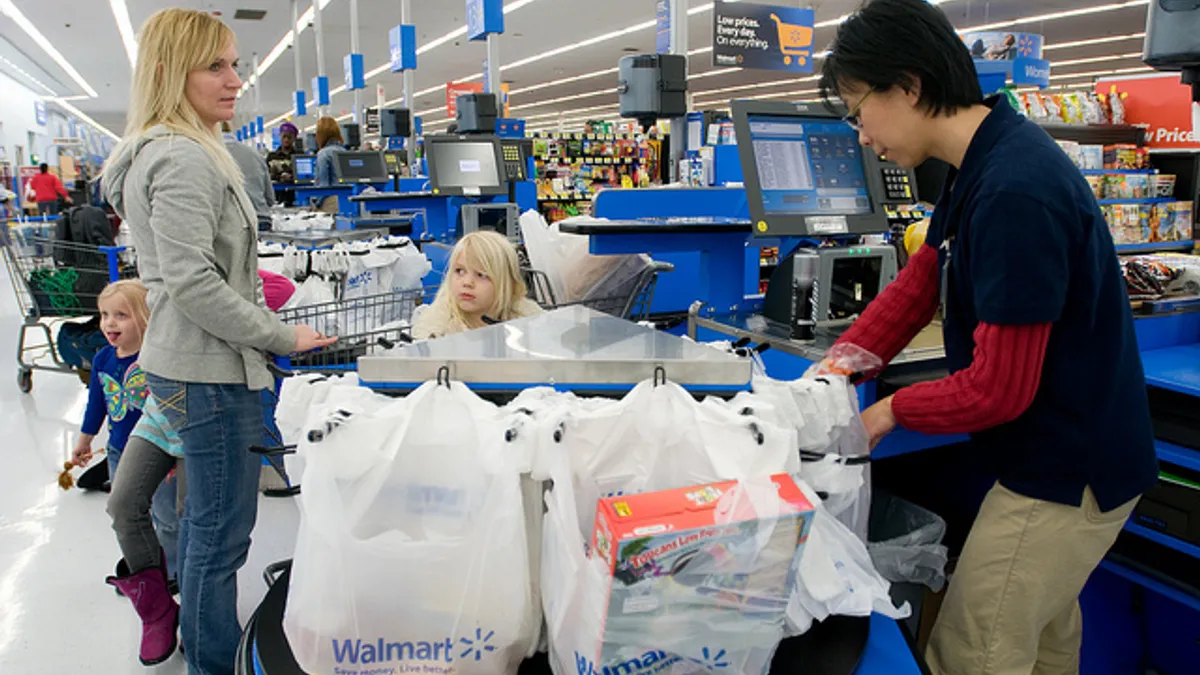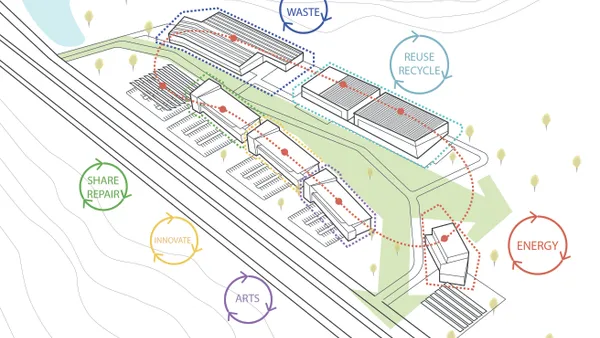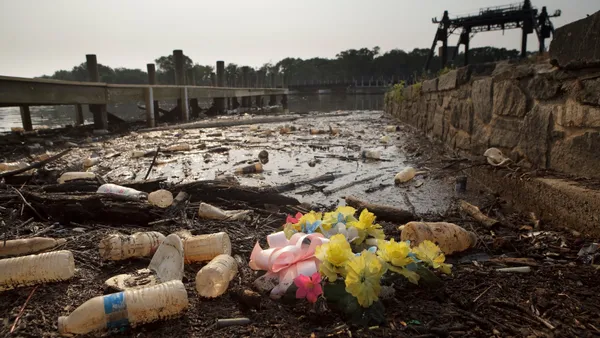Dive Brief:
- England's five-pence fee on plastic bags for large retailers has resulted in a major usage reduction since it was enacted in Oct. 2015. During the first six months of the fee, the country's seven main supermarkets gave out 640 million bags as compared to 7.64 billion bags during all of 2014.
- When taking into account all 285 large retailers which registered with the government, the total number of bags given out during this time period is 1.1 billion—though this may include some reusable bags.
- Retailers donated at least £29.2 million ($38.6 million USD) from fee proceeds to various charitable organizations. Government officials project that if this pattern of usage reduction continues it could mean a £60 million reduction ($79.4 million USD) in litter clean-up costs and £13 million ($17.2 million USD) in carbon savings over the next decade.
Dive Insight:
England was the last part of the U.K. to adopt a bag fee and so far these results are following a trend shown in the other countries that came before it. Wales introduced a fee in 2011 and saw a usage reduction of 76%, followed by Northern Ireland in 2013 with a reduction of 71% and Scotland in 2014 with a reduction of 80%.
Some of these countries also charge for bags in smaller retailers, as well as for paper bags. In England, the fee doesn't cover paper bags and only applies to retailers with 250 or more full-time equivalent employees. Exemptions are made for items such as raw meat, fish, prescription medicine, seeds, and flowers.
The environmental cost of plastic, paper, and reusable bags continues to be a hotly debated issue in the U.S. Seattle recently announced a 50% decline in the amount of plastic bags being thrown away and Massachusetts has seen a recent wave of local ordinances. However the fees aren't an instant hit everywhere, as the fates of similar efforts in New York City and California are currently uncertain.















